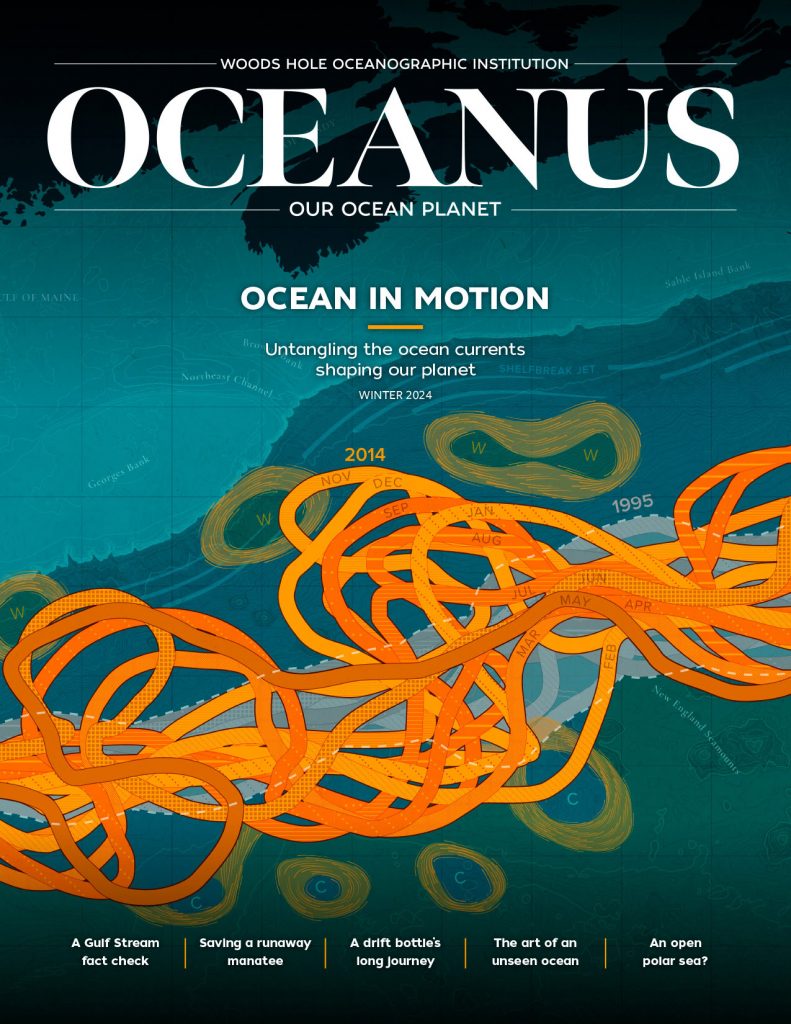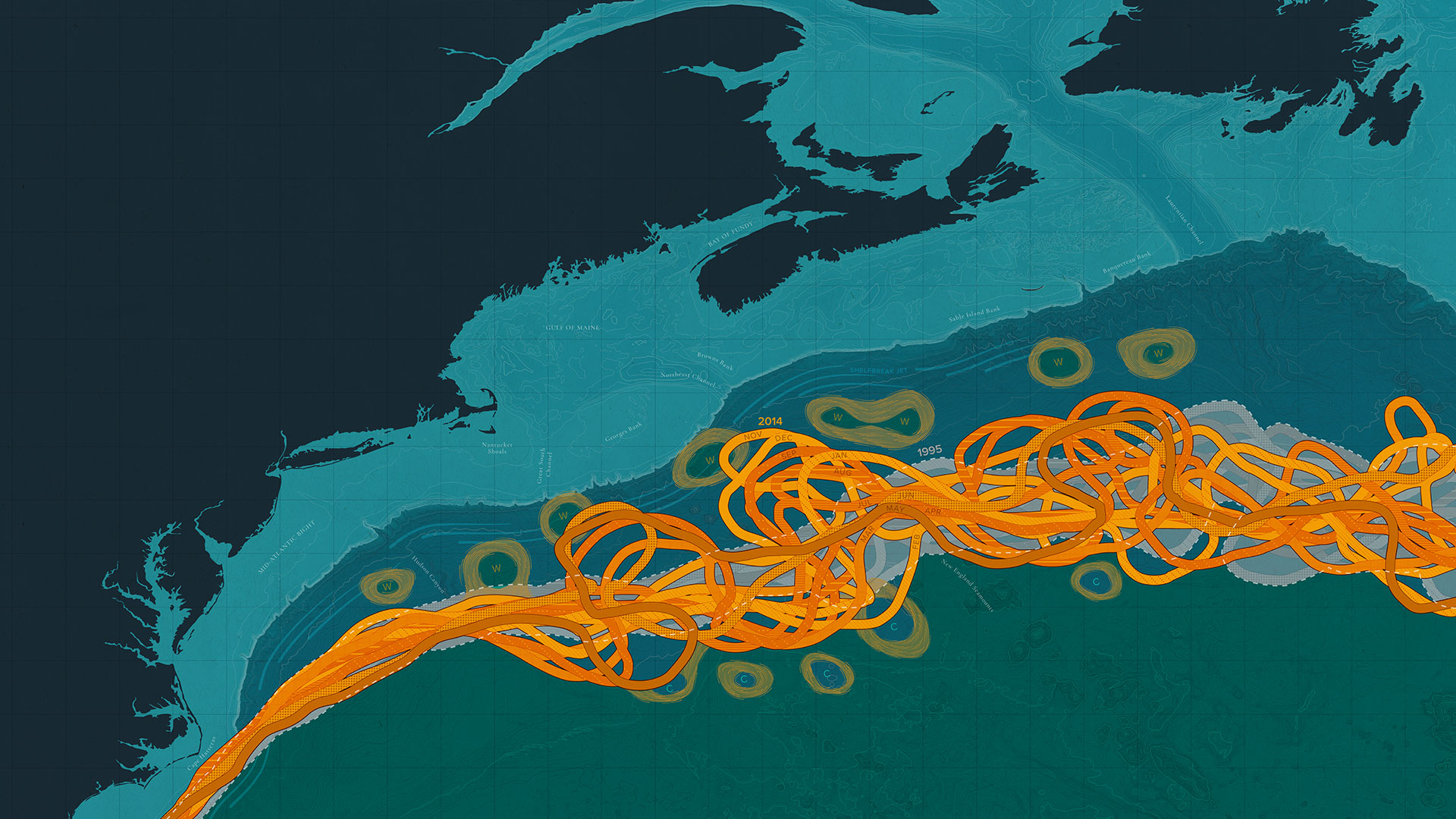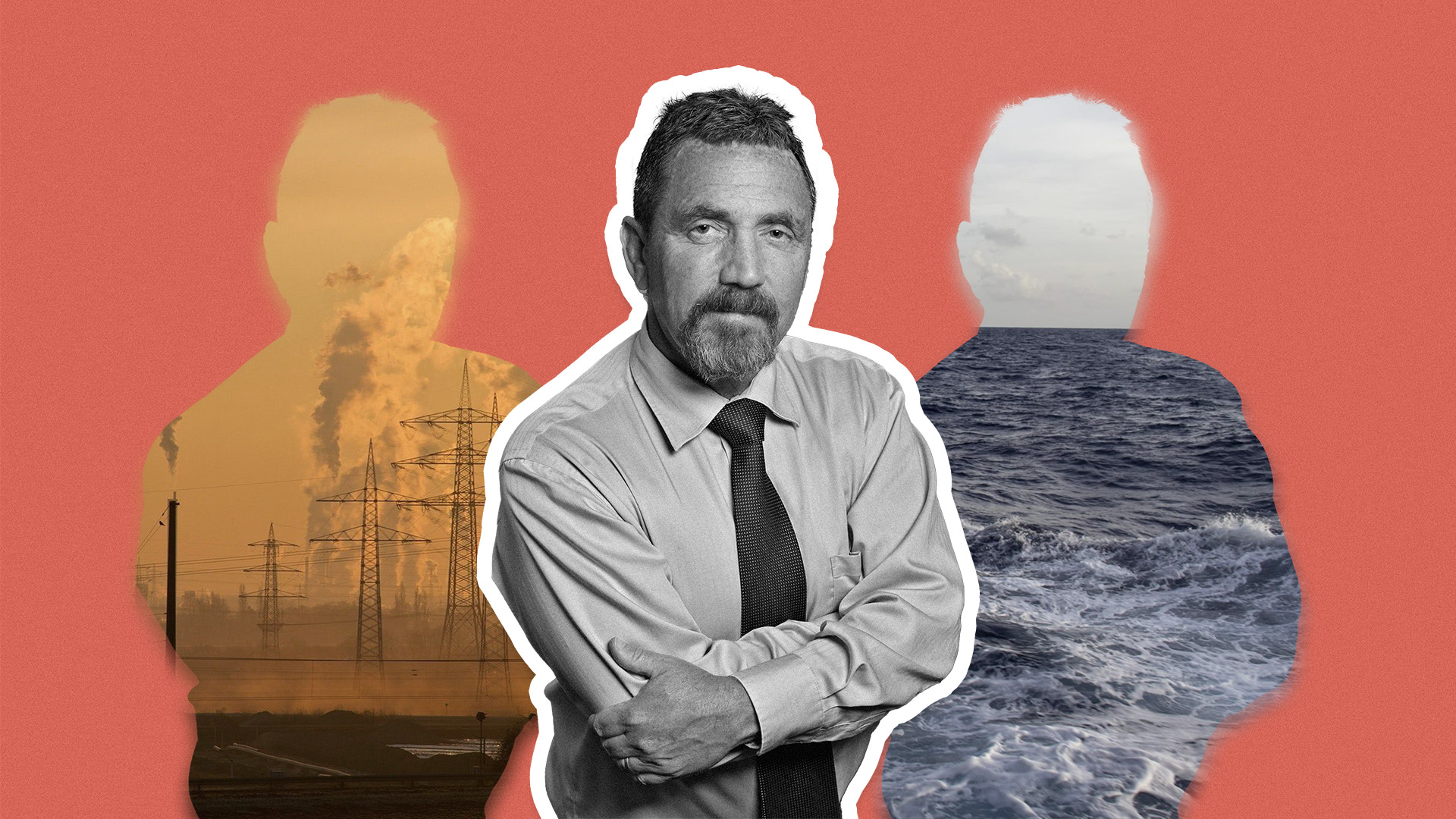An enduring legacy of impact in ocean and climate research
The new Francis E. Fowler IV Center for Ocean and Climate—a flagship program of WHOI’s president—is designed to unlock the institution’s full potential as the world’s premier independent ocean research organization to address climate change
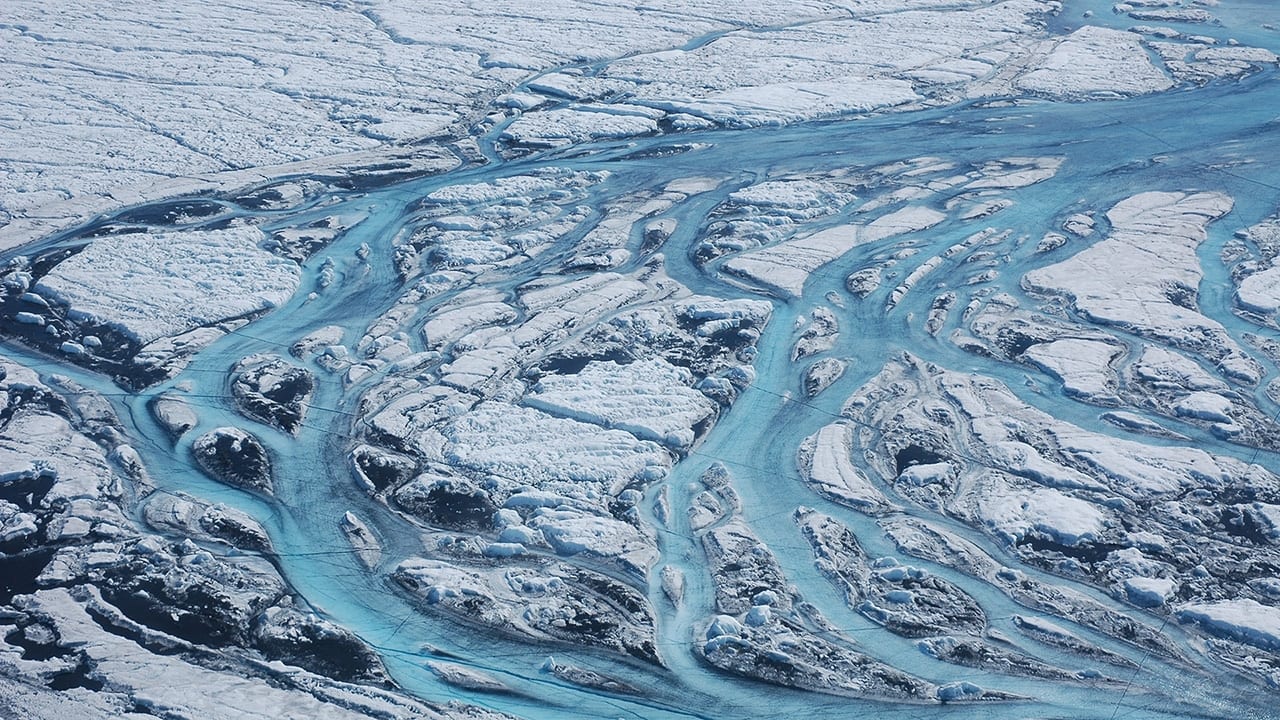
Estimated reading time: 4 minutes
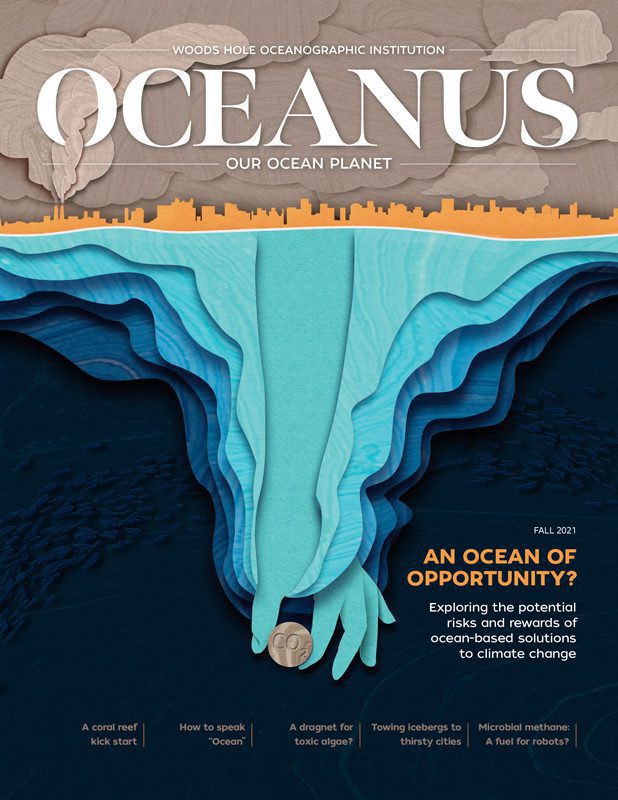 This article printed in Oceanus Fall 2021
This article printed in Oceanus Fall 2021
The ocean plays a central-yet underappreciated-role in global climate and regional weather patterns. Through its circulation, food webs, and chemical reactions, the ocean helps regulate Earth's climate by taking up carbon dioxide (CO2) from the atmosphere and moving it through the ocean twilight zone to the deep ocean, where it can remain sequestered out of the atmosphere for hundreds or even thousands of years. In fact, the ocean's "biological pump"-one of the key processes by which CO2 is removed from the atmosphere, converted into organic carbon, and dispatched to the ocean's depths-may be responsible for sequestering as much as two to six times more carbon from the atmosphere than is emitted by all of the world's automobiles each year.
The ocean also plays an important role in regional weather patterns and distributes vast quantities of heat and moisture around our planet. The saltiness of surface water in one part of the ocean has been linked to rainfall patterns on land thousands of miles away. Surface water temperature can help predict the intensity of storms. And ocean waters have absorbed most of human-caused global warming.
"The ocean and the climate are not separate systems," says WHOI President and Director Peter de Menocal. "They are part of a single, profoundly intertwined planetary system. If you are concerned about climate-and you should be-you must also be concerned about the ocean."
This connection was clear to Francis E. "Van" Fowler IV as he began to consider the philanthropic legacy he would like to create.
"Our planet's climate has an unfathomably complex relationship with the ocean," Fowler says. "Never before has there been a more important moment to invest in humanity's ability to understand this relationship and seek solutions to the growing climate crisis."
"Climate change is the crisis of our generation, and understanding the ocean's role in climate is essential to mitigating its impacts."
—Francis E. Fowler IV
Earlier this year, timed to coincide with Earth Day 2021, Fowler announced his intentions: He bequeathed his entire $25 million estate to establish in perpetuity a new research center at WHOI-the Francis E. Fowler IV Center for Ocean and Climate. Fowler also made a gift of $3 million to enable the center to immediately commence operations.
The new center-a flagship program of WHOI's president and director-is designed to unlock WHOI's full potential as the world's premier independent ocean research organization to address climate change, drive technology development, and advance scientific knowledge. It's also aimed at increasing public understanding of the global ocean and its effects on our climate, atmosphere, and weather.
"It is imperative that we act now," Fowler says. "The ocean covers more than 70% of the globe's surface. It is our planetary life-support system. If we want to turn climate change around, we need to look to the ocean-and if we don't understand it and take care of it, the future of our ocean planet could be compromised to the detriment of mankind and all living creatures."
In keeping with this sentiment, the new center will leverage WHOI's world-class science, engineering, and innovation engine to explore the efficacy and potential impacts of ocean-based solutions to climate change. This may include lowering barriers to ocean-based renewable energy, conserving existing coastal ecosystems, reducing the carbon footprint of the fishing and aquaculture industries, and removing carbon dioxide from the atmosphere for storage in the deep ocean. These strategies offer hope for reversing climate change and keeping global temperature rise below the threshold of 1.5°C set by the international Paris Agreement on climate change. Yet little is known about the efficacy of these approaches-or their associated risks-and much more rigorous, impartial research is needed before any of these solutions can become a reality.
"Mr. Fowler's extraordinary gift," says de Menocal, "will propel critical work that is needed to understand and elucidate the interplay between the global ocean, Earth's climate, and human societies. And it will cement WHOI's position as a leader in ocean and climate research at a time when the world urgently needs scientific leadership in this area."
Fowler is a retired international businessman and entrepreneur. At age 5, he was introduced to the ocean at a beautiful beach in La Jolla, California, and he never looked back. Whether it was sailing, swimming, surfing, fishing, kayaking, scuba diving, power boating, waterskiing, or flying seaplanes, he spent a good deal of his recreational time in the water, on the water, or above the water. In 2000, he flew to New Zealand to have an 85-foot custom sailboat built, which he has since sailed around the world one-and-a-half times. After years of research, adventure, and discovery in the many oceans of the planet, he grew to love the seas and the creatures that live in and around them.
The Francis E. Fowler IV Center for Ocean and Climate will support activities at WHOI such as the establishment of fellowships for students, postdoctoral scholars, and established scientists at the Institution to pursue climate research; provide direct investments in research projects; and support efforts to engage the public and policymakers around ocean and climate issues. The center will also supply research-acceleration funds to unlock additional funding from outside sources, drive ambitious research programs, and support collaborative, multidisciplinary efforts across WHOI.
"Climate change is the crisis of our generation, and understanding the ocean's role in climate is essential to mitigating its impacts," Fowler says. "I am glad to have the opportunity to make a positive impact where our planet needs it most."
